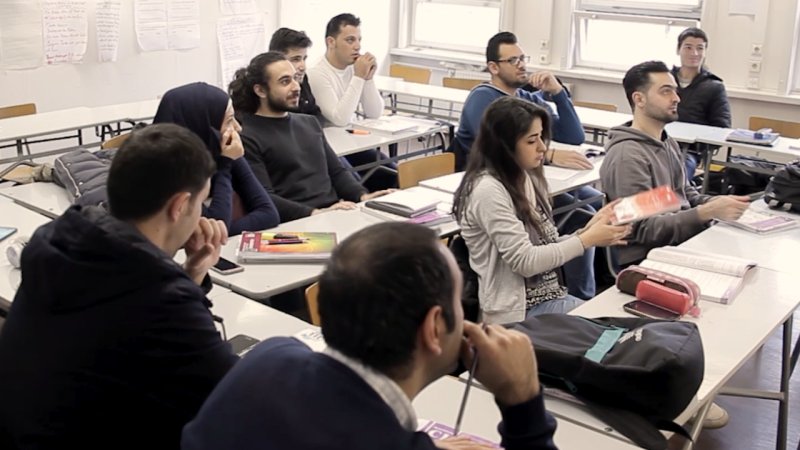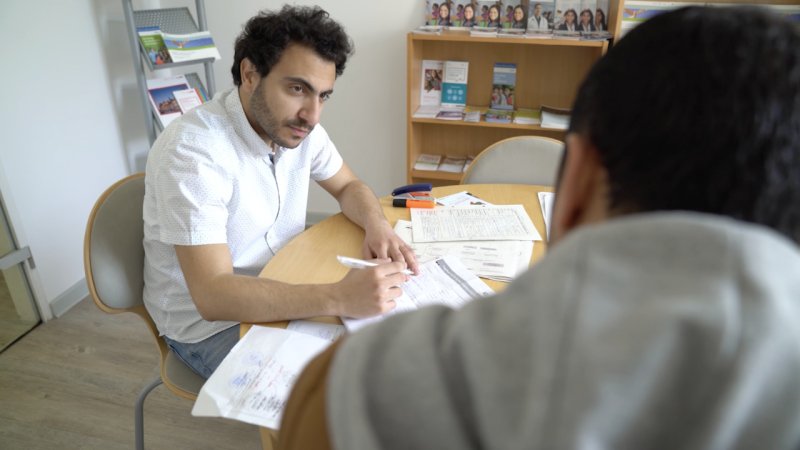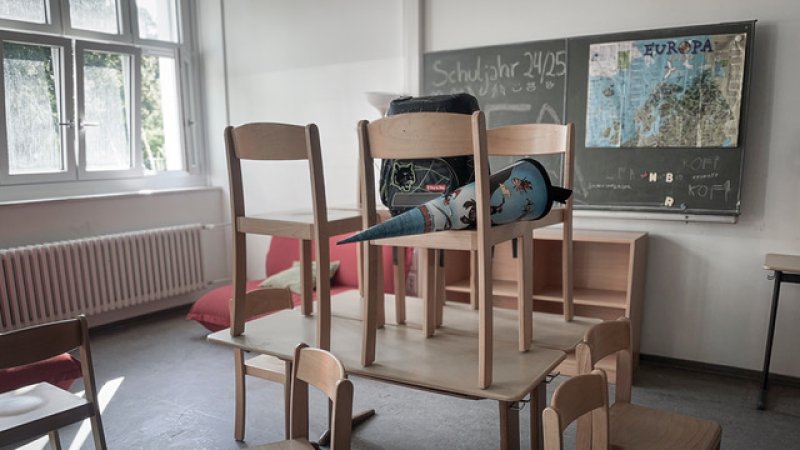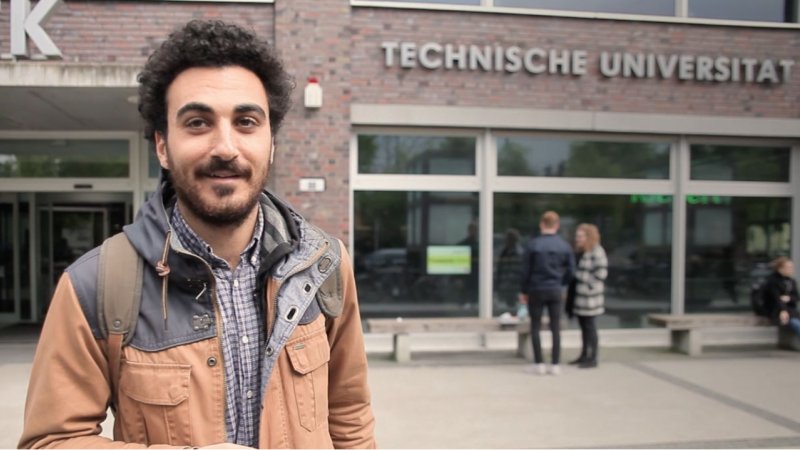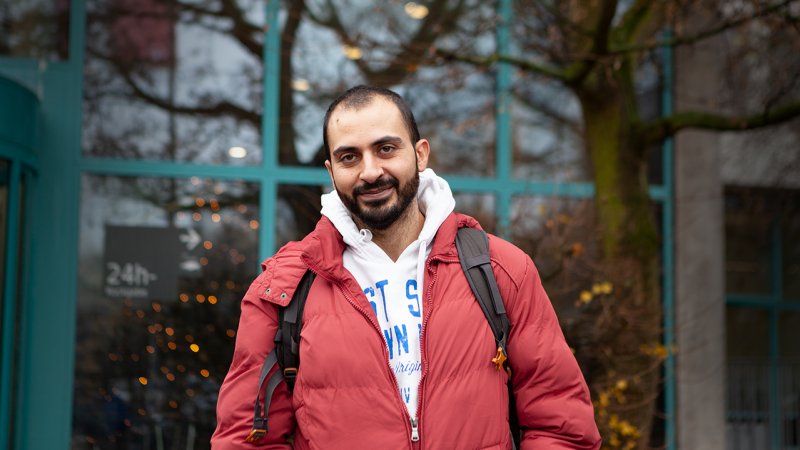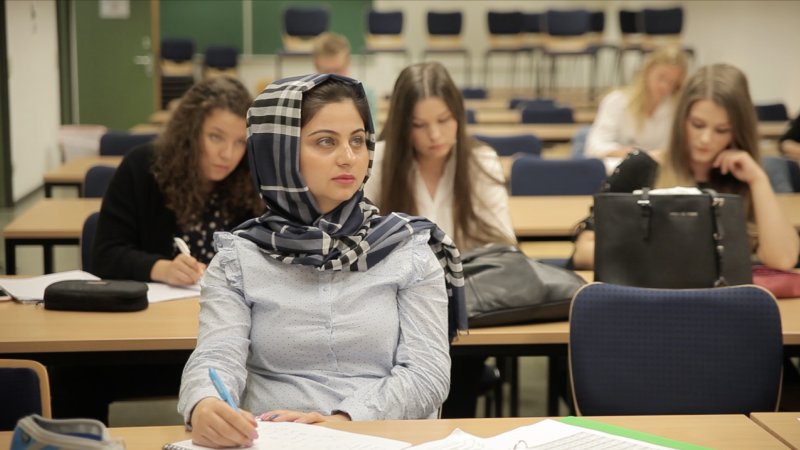Education
Language, school, studying, vocational training and more
BAföG for Students
Going to university can be a worthwhile choice for your future career; nevertheless, money is often tight when you are in the university. In Germany, a state fund has been designated under the Federal Training Assistance Act (BAföG) to help the students with the financial burden. According to the act, if you or your parents have a small income (and you are not in Germany on a student visa), under certain circumstances, you can apply for BAföG and receive an allowance from the state during your studies.
Please note: BAföG is generally also available to trainees and schoolchildren. On this page, you can find out more about BAföG for (university) students.
*The information on this page was updated with the kind support of Prof Matthias Knuth from the Association for the Integration of Highly Qualified Immigrants - INTEZ e. V.
Certified Copies
You have most probably heard the term "certified copy" ("beglaubigte Kopie") or the phrase "you need to have your documents/certificates authenticated" in Germany. In particular, when applying at university or the Civil Registry Office ("Standesamt"), you are required to submit a certified copy of your diplomas or documents. Here you can learn what a certified copy is and how you can make a certified copy of your documents.
Dual Vocational Training
If you want to find a job in Germany, a good alternative to studying at university is taking part in a vocational training programme. There are approximately 330 different jobs you can qualify for with vocational training. These training programmes usually last between one and three-and-a-half years. They are either school-based and take place solely in a classroom (“schulische Ausbildung”) or combine classes with practical training in an establishment or company (“Duale Ausbildung”). In this chapter, you can read about the dual vocational training. For more information about the school-based vocational training programs, please refer to the chapter “School-based Vocational Training”.
Upon completion of a vocational training programme, you become a skilled employee (“qualifizeierte Fachkraft”). Skilled employees are in demand in Germany and earn more money for their work compared to unskilled workers. So, completing a vocational training programme may constitute an important step towards building a career in Germany.
Educational Package
Participation in school trips, learning to play a musical instrument or joining a sports club can be costly. And such expenses are often not easy to afford for many families. The "Bildungs- und Teilhabepaket" (also called "Bildungspaket" or "Educational Package") is a form of state aid for children from low-income families intended to enable them to participate in school-related and leisure activities. With the Educational Package, the government supports children to participate in and benefit from certain activities and services at school and in their leisure time, such as lunch service at school or after-school care, private tuition and joining sports clubs and music classes.
German for Work
If you would like to continue learning German after the integration course (or any other German course), you may be able to participate in and benefit from an occupational language course. These courses are known as "Deutsch für den Beruf" or "berufsbezogene Deutschsprachförderung". A work-related German course can provide you with the opportunity to gain a foothold in the German job market and improve your qualifications.
Higher Education
As a member state of the European Union, the German higher education system was aligned with other European countries in the course of the 2000s. This is called the “Bologna Process”. The new bachelor’s and master’s degrees have now practically replaced the diploma (“Diplom”) and former master’s degree (“Magister Artium”). However, you might still come across them because not all universities have completed the Bologna Process yet. "Diplom" and "Magister Artium"both are equivalent to the new master’s degree.
Initial Orientation Course ("Erstorientierungskurs")
Starting up a new life in a new country is never easy. Not only do you have to learn the language, but you also have to find your way around in everyday life. Refugees, in particular, face many difficulties because they have not been able to prepare themselves for life in the new country. That is why in Germany, the so-called "Initial Orientation Courses" ("Erstorientierungskurse") are organised. In an initial orientation course, you can learn your first words and sentences in German and will receive essential information about life in Germany. For example, you will learn how to call an ambulance in an emergency or can familiarise yourself with customs and traditions in Germany.
Important: Many refugees can start an Integration Course ("Integrationskurs") straight away. You can find out more about these courses in our "Integration courses" chapter. "Erstorientierungskurse" is for refugees who cannot participate directly in Integration courses.
Integration Courses
If you have recently arrived in Germany, you may find that the language is one of the biggest challenges to face. In order to interact with German authorities, study at university, do vocational training or find a job, you often need to be able to communicate in German. Knowing German also facilitate your settling down in Germany and enables you to connect to other German-speakers on a personal level.
In an integration course, not only you will acquire the language, but also learn quite a lot about German culture and society. In this page, you can find out what exactly an integration course is and whether you can take part in it – you will also learn about the offices which can potentially cover the respective costs.
Internship
Doing an internship helps you to gain work experience and can considerably improve your job opportunities. In many schools and universities, the students are expected to take part in a compulsory internship during their studies. Here you will learn about your rights as an intern, the benefits of doing an internship, and the crucial issues you need to consider before starting your internship.
Kita: Childcare in Germany
In Germany, most small children attend a daycare centre or "Kita", where they can find new friends, play and learn outside the home and independent of their parents. You do not have to send children to a daycare centre, but doing so can help your child learn the language and many other useful things. In addition, sending your child to kindergarten will prepare him/her for attending school and provide you with the time to focus on your integration course, education, or vocational training.
Learning German
There are various ways to learn German and improve your proficiency, even if you are not (yet) allowed to attend an integration- or vocational language course. Here we show you which possibilities you have to learn the German language cost-free or at an affordable cost.
Recognition of foreign certificates
If you have obtained your school or vocational qualification outside Germany, you can have it recognised here. Unlike vocational qualifications, your university/school qualifications may already be recognised: you can check the official portal Anabin to see whether your school, university, and degree are listed as recognised. You can read more about this in ‘How can I find out whether my qualification is categorically recognised?‘
In the recognition process, your degree is compared with a similar German degree. When your qualification is verified as an equivalent to the corresponding German degree, your diploma is "recognised", and you will have better chances in the job market.
All people with foreign qualifications have the right to this recognition process- it does not matter what residence status or nationality you have.
Please note: People who are still abroad sometimes have to provide relevant documents (e.g., training place, job offer) to prove that they intend to pursue vocational training or employment in Germany. If that is the case, you can also have your professional qualifications recognised in Germany.
*This information page has been updated with the support of the IQ Network NRW.
School Enrolment
The first day of school is significant in every child's life. School is not just somewhere children learn to read, write and do mathematics; it is also where they get to make new friends. Therefore, many schools and families celebrate the first day of school with a special festival. But before planning the celebration, there are a few things to take care of. Here you can learn when your child can start school and what they need for their first school day.
Before starting school, there is a so-called school entry health check. You can learn more about these tests in our chapter "School entry health checks".
School Entry Health Checks
In Germany, many children start school when they are 6 or 7 years old. The parents are often to decide precisely when a child starts school. But such a decision is not always easy to make. Therefore, paediatricians support parents in their decision-making. They examine the children and see whether they are ready for school or should wait another year. Such examinations are called "Schuleingangsuntersuchung" or school entry health tests and are cost-free and compulsory for all children who are about to start school in Germany.
School-based Vocational training
If you want to find a job in Germany, a good alternative to studying at university is taking part in a vocational training programme. These training programmes usually last between one and three-and-a-half years. They are either school-based and take place solely in a classroom (“schulische Ausbildung”) or combine classes with practical training in an establishment or company (“Duale Ausbildung”). This chapter provides you with detailed information and useful links on school-based vocational training. To find out more about dual vocational training programmes, check our chapter “Dual Vocational Training”.
Upon completion of a vocational training programme, you become a skilled worker (“qualifizeierte Fachkraft”). Skilled worker are in demand in Germany and earn more money for their work compared to unskilled workers. So, completing a vocational training programme may constitute an important step towards building a career in Germany.
Schools in Germany
Education in Germany is regulated at the federal state level, meaning each of the 16 federal states has its school system. Only the general compulsory education and the grading system are same throughout Germany. The school-leaving qualifications obtained in any individual federal state is recognised throughout Germany. Here you can find information about the school system in Germany as well as advice regarding issues like extra tutoring and bullying in schools.
Student Finance
Financing your studies is one of the major issues you have to deal with before enrolling at a university. Fortunately, most public universities in Germany do not charge tuition fees, but studying, in principle, costs money: Every semester, you have to pay a semester fee, buy books and, of course, continue to maintain your livelihood.
In addition to student jobs and BAföG, there are also numerous scholarships as well as special loans and other financing options for students in Germany.
Student Jobs
You may have to earn money on the side while you study because the BAföG or other financial support you receive is not enough for a living. Or maybe you do not even receive any financial aid- then the only option left is to work and study at the same time. However, having a part-time job ("Nebenjob") can also help you start gaining work experience and establishing professional contacts, even if your student job is not in your future field of work. When it comes to student jobs, there are often many questions: Do I have to pay taxes? What type of insurance should I have? Does my part-time job affect my entitlement to BAföG? Here we answer the most crucial of these questions.
University Application
Regardless of whether you want to stay in Germany or not, studying at a German university can open up many opportunities for your future professional life. Entering university, however, is not always easy. You have to meet some requirements and observe many deadlines and regulations. Here you can find out if and what you can study in Germany and how to apply for a degree. Furthermore, you will learn if you can continue the studies you have already started abroad in Germany.
University System
The higher education system in Germany is very diverse. There are hundreds of universities, colleges, vocational academies, colleges of music and art and much more in Germany. The umbrella term for all these educational institutions is "Hochschule". Higher education institutions in Germany may be funded by the state, church or private sector. In private colleges, you usually have to pay tuition fees. Finding the right university is not quite easy. Here is a brief overview of the specifics of the different types of higher education institutes available in Germany. You can learn more about German universities in our chapters "University Application" and "Student Finance".
Visa and residence permit for the recognition of professional qualifications
Recognition of foreign qualifications enables those who have completed their training abroad to work in their profession in Germany. The recognition process takes place at the so-called "recognition offices "("Anerkennungsstelle"). However, foreign qualifications occasionally do not meet all the necessary criteria for full recognition. When that is the case, you can attend a qualification programme in Germany, such as a technical training course or a job-related German course. To participate in qualification programmes in Germany, you need a corresponding entry visa and must later apply for a residence permit in accordance with §16d Residence Act in Germany.
Good to know: If you would like to have your qualifications recognised in order to work in Germany, you can also apply for a residence permit in accordance with Section 16d (3) Residence Act. To do so, you must prove the job in question is a qualified job. (There are individual exceptions or exemptions for church work or care-related professions).
You can also obtain a residence permit if you wish to undergo a so-called “Qualifikationsanalyse” (qualification analysis) or take part in an examination in Germany. This type of residence permit is issued for a maximum of 6 months. You will usually also need A2 (CEFR) language skills, depending on your qualifications. In addition, you must be able to prove that you have already been invited to a ‘qualification analysis’.
Vocational Training: Orientation for Refugees
Finding a vocational training position is usually not easy. The trainees often have to meet different requirements such as sufficient knowledge of German language or prior internship experience in the field. Furthermore, one has to stand compared to other applicants during the application process and job interview. If you cannot compete with other applicants, it is not so easy to enter the training market.
Since many refugees often find it challenging to find a vocational training position, there are various organisations and initiatives in Germany that facilitate their access to the training positions by offering different types of support, ranging from preparatory courses and orientation assistance to coaching and mentoring.







